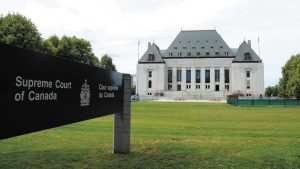A Manitoba King’s Bench court case decision — one for the record books — is being appealed although the plaintiff subcontractor has won $100,000 in court costs but lost the legal arguments over a three-week trial.
The case is considered unusual as it is the first time in Manitoba that a justice has given the trial costs to the loser rather than the winner. The cost hearing was held in late 2024 for the trial in early 2024. It is also unusual because the justice in granting costs pointed out that the lack of an impartial review by the City of Winnipeg before unjustly banning the subcontractor led to drawn out legal proceedings.
“We are not appealing the costs,” said the plaintiff’s trial lawyer Janet Jardine, who faced off against the city in a case that roots back to 2017.
Jardine said she is also not appealing the trial justice’s assessment that found the city treated the subcontractor “badly and unfairly.”
Jardine’s appeal on behalf of the subcontractor is based on the reasons for implementing the two bans on the subcontractor, which she is arguing stem from a personal dispute with the subcontractor by a city employee.
The trial judge acknowledged while the bans were based on “untrue allegations,” the subcontractor had not proven his case of misfeasance in public office, causing loss by unlawful means and breach of a common law duty of procedural fairness or natural justice.
But, he said, his judgment was not “a vindication of the city’s actions or conduct.”
The subcontractor — named in court documents — is not being named publicly to prevent further damage to his reputation.
The first ban was imposed in April 2017 from the city’s water department and a second on November 2017 from all city departments. The subcontractor sought legal counsel, who sent a detailed demand letter to the city and a follow-up letter seeking a review of the ban and replacement of lost income.
The city did not respond or acknowledge receipt of the letters, leading to legal action “not only as a legal remedy but, importantly to cleanse his reputation,” the justice said.
The dispute underscores the problems that can occur when municipalities do not have a good review process or dispute resolution mechanisms in place.
In the case, one city employed initiated allegations against the subcontractor of lying, trespass and attempted theft, stemming from the subcontractor loading his vehicle the night before he was to start a job. That led to a senior staff member imposing a blanket ban.
The senior employee felt it was important to support staff, although the claims were not investigated.
Neither ban was “based on an informed, objective process — the process was flawed,” the justice ruled, adding no real scrutiny was brought to bear on the allegations, which were shown untrue.
Instead, he said, the city maintained the subcontractor was guilty, proceeding with “tunnel vision.” The entrenched position of each side caused the matter to be drawn out forcing the subcontractor to expend far greater resources on the case, the justice said.
The city also did not earn any merit with the justice, when it reneged on an agreement at the trial that city lawyers would remove the November 2017 ban if the justice found it unfair.
“Considering the facts I have found, the city should act honourably and voluntarily lift both bans,” he reasoned at that time. “It is the only right way to make amends.”
The justice asked city lawyers to make sure appropriate city personnel were made aware of his assessment of the situation.
At the later costs hearing, the justice found the city had reneged on its position to lift the second ban.
“In doing so, not only did the city not go further and lift both bans, as I exhorted they were honour-bound to do, but they acted shabbily by breaking their word about revoking the November 2017 ban,” the justice said, adding the city treated the contractor unfairly in 2017 and again after his earlier judgment.
For those reasons, he said, he ordered the city to pay $100,000 of the subcontractor’s legal fees.
Vancouver construction lawyer Mike Preston, who has written articles on bans and blacklisting contractors, said a contractor forced to turn to the courts for fair treatment can have long-term effects on the municipality and the contractor.
A 2017 Canadian study showed more than 300 municipalities had reprisal clauses in contracts which exempt any contractor involved in past litigation, even if the contractor won the suit. Manitoba was seen as province with the strictest reprisals as a contractor working for a school board was banned not just from that board, but from all school boards.
Preston said an independent review process prior to a ban or court action “can take the emotion out of the equation.”
The municipality, he said, also loses when a contractor, who may be competent at his job, is banned needlessly as there are fewer good companies bidding on contracts.
“You end up blacklisting good contractors,” he said.











Recent Comments